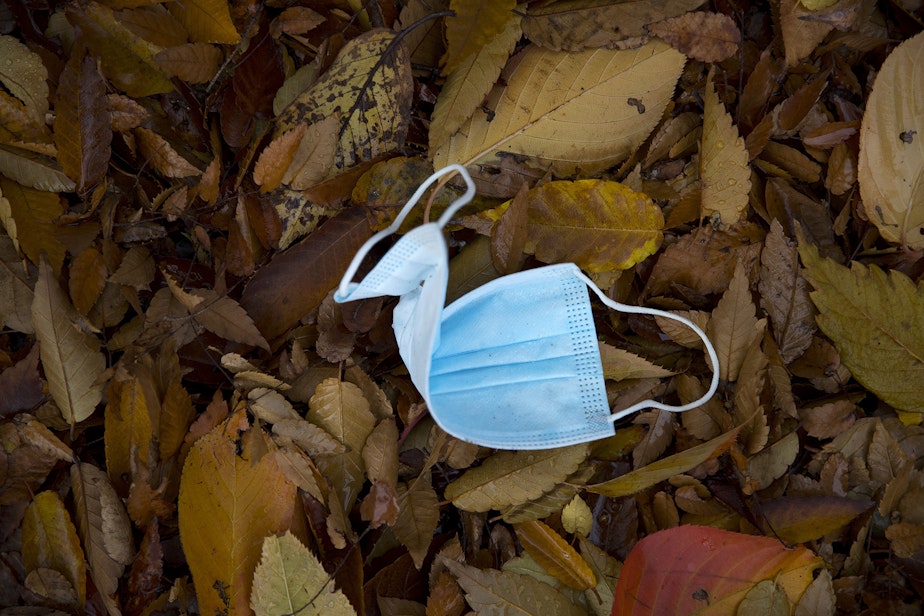There's light at the end of the pandemic tunnel, but many still feeling anxious

One year into the pandemic seems like a good time for a check-up on our mental health.
The rollout of Covid vaccines is easing some worries, on a global scale. Still, many people continue to feel anxiety. We asked some Seattle-area therapists for their observations, and advice, at this one year mark.
In the early months of the pandemic, Jake Holt lost his job as a lighting supervisor at Teatro ZinZanni, a dinner theater in Downtown Seattle. He kept busy with temp work, learning new software, and working out. But lately, he’s losing motivation.
“It’s been hard to summon the energy in the mornings,” Holt said. “I find myself spending more and more time in bed.”
Holt worries about surviving financially and continues to search for work. He wonders what the future holds for the arts and live events in the city, and what that means for his career.
“I’m 29 now and I’ve done that since I was 18. And so not having that has prompted a lot of soul searching as far as what and who I am without that.”
Sponsored
A year into the pandemic, many are like Holt—feeling fatigued, and having a hard time holding up. A recent Department of Health report backs that up. Roughly one in four people in Washington are experiencing symptoms of anxiety on at least most days. More than a million surveyed experience symptoms of depression.
“My calendar has never more full than it has been in the last nine months,” said Dwayne Stone, a licensed mental health counselor for more than three decades.
Stone says many of his clients are already exhausted by everything the pandemic has thrown at them. It makes them feel powerless when they think about the future.
“They don’t know how to plan for it, or control it,” he added.
On top of that, they’re struggling to manage their day to day lives, whether they’re working at home with their partner or at home by themselves, or if they’re at home managing their children’s schooling.
Sponsored
“They’re caught between this experience between having to understand the future and trying to come to speed with what’s happening to their daily activities, so it’s overwhelming on a couple of levels. ”
Stone says he tries to help people understand what’s behind their emotions, and how to approach big life decisions that might be weighing on them, like their relationships or their jobs.
“I suggest to people, don’t cross bridges before you get to them. You don’t even know what bridge you’re going to need to cross but when you get there, you’ll know what to do.”
He added, often the best thing they can do is manage the things that are in front of them now.
For Black people and communities of color, thinking about a post pandemic future has a whole different layer of complexity.
Sponsored
“What has been highlighted during this time is the ground of the inequities that we are being witness to, especially that of race," said Dr. Claudelle Glasgow, a Seattle psychologist who works primarily with BIPOC and LGBTQ clients; her personal pronouns are doc and she.
The pandemic has put a spotlight on ongoing racial disparities, and has made those stresses and anxieties more pronounced. Doc says many of them are working with different layers of complex grief.
“Working with the grief of losing loved ones, losing jobs, with unsustainable unemployment, being fired from institutions that are racist or do not want to address the inequity issues, witnessing throughout this year, throughout all our lives countless Black people being killed without penalty.”
At this stage in the pandemic, the public is focused on the vaccine — how to get it, or when their turn might come up. But for many people of color, the bigger issue, still, is systemic change, everything from health care to policing.
“The ways with which our systems have been built is broken,” said doc. “Really, the question is will others be able to hold the intersectional layers simultaneously that are needed to institute lasting change. That’s what people are holding out for.”
Sponsored
In the meantime, she helps her clients tend to their own mental health to find their joy and power so they can be strong for the bigger challenges ahead.




